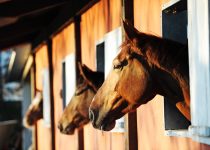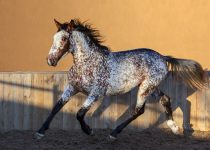Protecting the Herd: Essential Biosecurity Practices for Equestrians
Why is biosecurity important for equestrians too?
Well, biosecurity is simply the implementation of practices to protect a property from harmful pathogens that can cause disease.
Biosecurity practices can be used to prevent disease from entering your equestrian property and to prevent the spread of disease amongst your horses if it does arrive.
Pathogens Can Enter In Many Ways
Anything that moves onto your property is a risk for entry of a disease-causing pathogen. A pathogen is a microorganism that causes or can cause disease.
Therefore, preventing pathogens from entering your equestrian property will go a long way towards protecting it and your horses.
Pathogen exposure can occur via feed and water contamination, from a neighbor’s tractor or the arrival of a new horse on the property.
Vaccination is not enough to protect your horses; rather, your best bet for averting the spread of disease in your barn is to employ the following biosecurity management and hygiene measures.
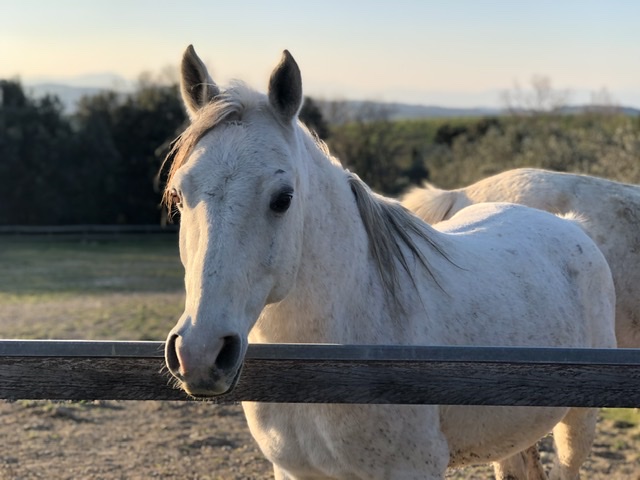
Biosecurity for Visitors
Tractors, equipment and even people themselves can unknowingly move dangerous pathogens from onto your property. To prevent the spread of disease, try to direct visitors to the appropriate areas through clearly written and located signage.
When you are planning your property, be sure to pick an area for parking that is not located right next to the barn. Also, make sure any manure is disposed of away from this parking area.
To avoid the wrong people wandering near your barn, hang up restricted entry signs and lock any gates and buildings.
It is a great idea to keep a visitor logbook at the entrance of your barn to record the name, contact information, and date of visitors and vehicles, that way If an outbreak of disease does occur, the contamination can be traced back to the source.
We are all used to finding a hand washing or sanitizing station on arrival these days, but this is also a great biosecurity practice for when visitors enter and exit from the facilities.

Equine Management
- Set up a specific area for any horses that are showing symptoms of illness, mares with foals at foot, and newly arrived horses.
- Keep feed and water buckets thoroughly cleaned and sanitized.
- Schedule a routine check of all horses on the property to pick up any disease symptoms early.
- Record disease treatment and any deaths of horses to understand when an outbreak of disease is taking place.
- Make sure that you never reuse syringes or medical equipment, as blood or saliva remaining on these items can transmit disease.
- Ensure that you have a good worming management program, vaccination strategy, and protocols for the treatment of any equine disease.
- Routinely clean boots or gear that has been in contact with horse manure using a disinfectant.
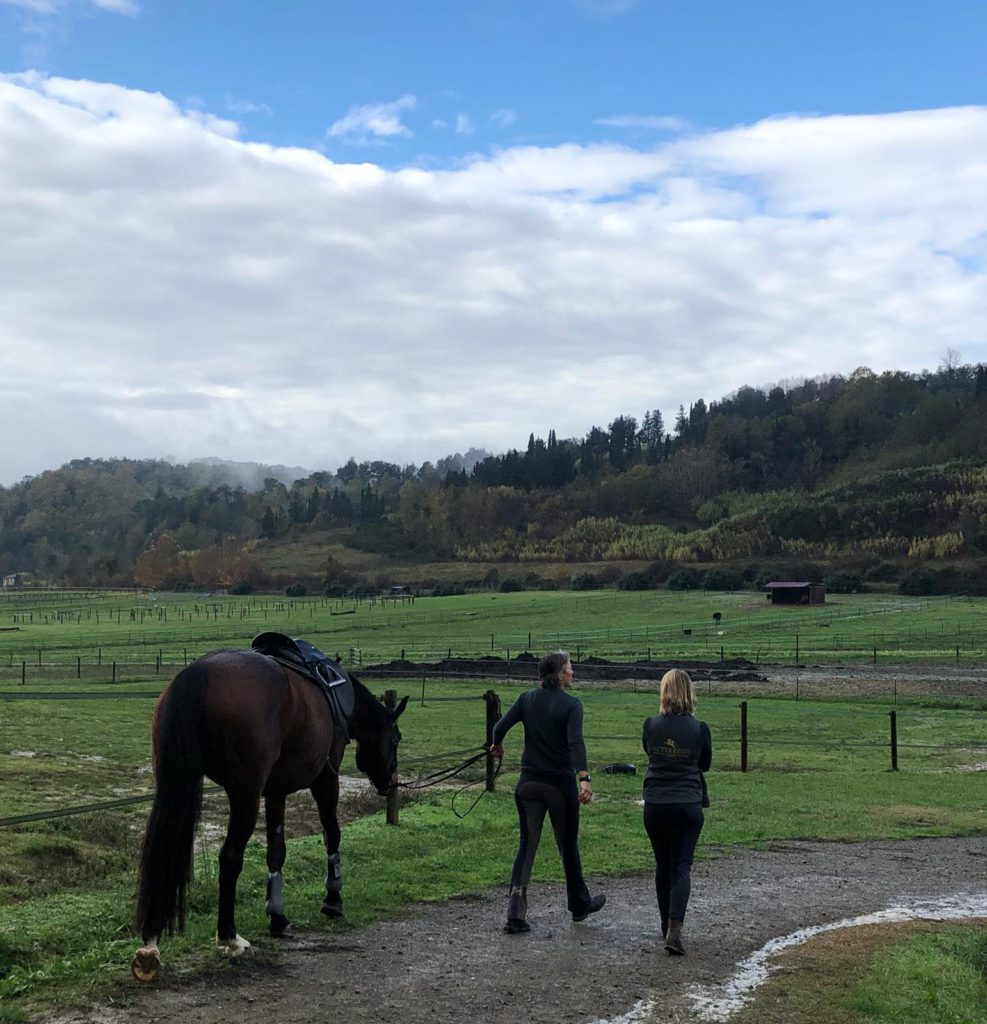
The Arrival of a New Horse
The introduction of new horses is often how pathogen transmission occurs. Even horses touching noses over a fence line can spread a disease.
Some horses carrying a disease can appear healthy. Young horses are most susceptible to becoming infected with disease and older horses are most likely to harbor disease-causing pathogens (even if they do not show any symptoms).
- Limit the introduction of any new horses onto your property and take care to do so slowly.
- Pay careful attention of horses when they arrive on the farm, and isolate new horses or returning horses to allow for any signs of disease to appear.
- Work with your veterinarian to decide how long they should be kept in isolation and when the horse is moved out of that area, take care to clean and disinfect everything.
- If the horses are coming from far afield, try to work with a transporter that applies biosecurity practices and disinfects their trailer between loads of different horses.
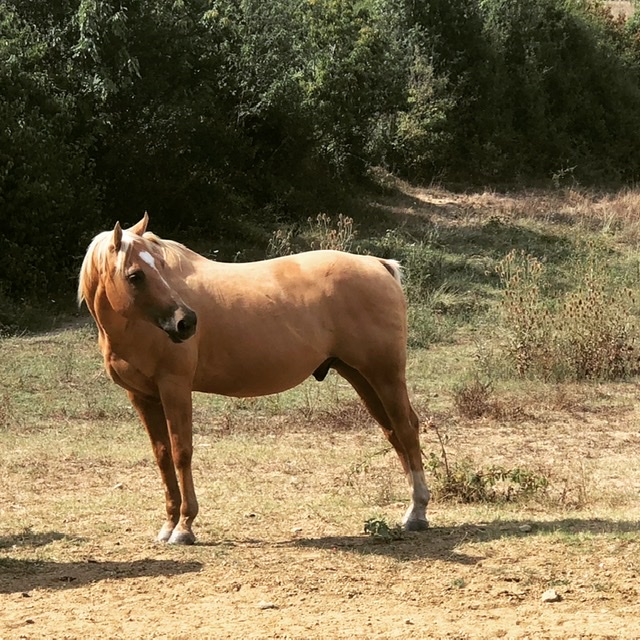
Manure Management
- Manure on your property can easily harbor and spread pathogens.
- Be sure to store manure in a manner that prevents contamination of water sources and prevents leaching or spillage. Locate this manure area away from other horses, and where pets and wildlife cannot easily access it.
- Set aside equipment that is for manure handling only, and make sure to clean it off periodically.
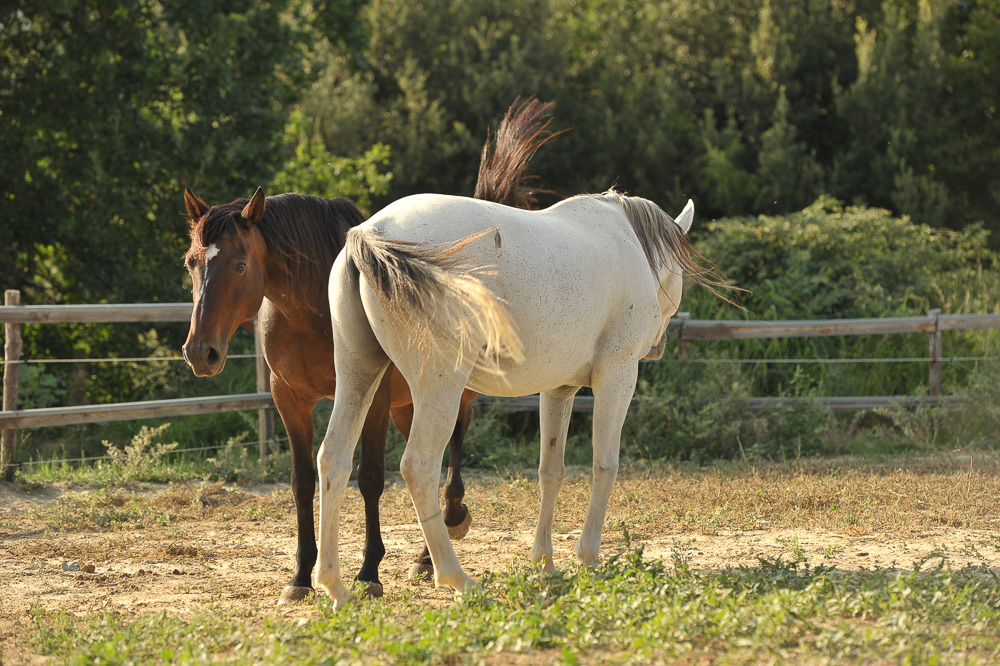
Preventing Feed and Water Contamination
- Contaminated feed can lead to disease spreading quickly throughout your property. Stored feed can also become contaminated with manure from wild animals such as mice or rats if they gain access to the feed, so be sure to disinfect bins between scheduled feed delivery dates.
- Keep rodents or pets away from the storeroom and take care that all feed has been moved into secure containers (often mice can enter paper bags from below without the horse owners realizing until they reach the bottom of the sack).
- Purchase horse feed from reliable outlets who use careful transportation to prevent pathogens spreading.
- Water can easily become contaminated and cause a variety of diseases, so preventing access of wildlife to your main water source is paramount.
- Be sure to inspect, maintain, and clean the water system regularly, and test samples for bacterial contamination.
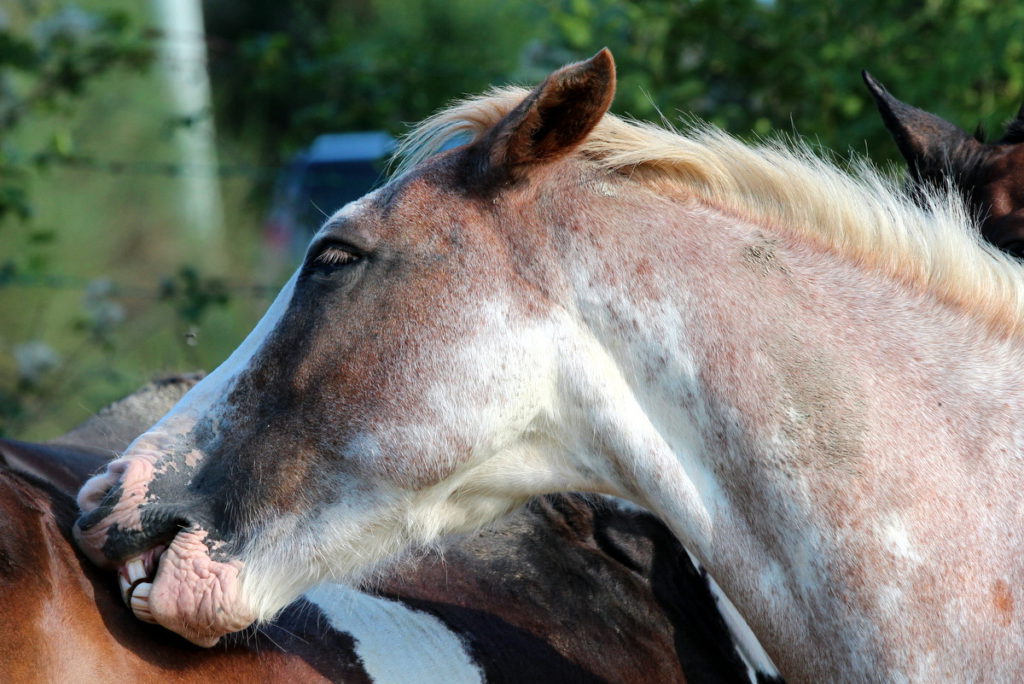
Out and About
Lasty, be sure to take care when you are traveling with your horse to competitions or events. Don’t let your horses have contact with other horses – especially those that travel a lot.
Make sure to keep your gear separated from other horse owners and spray it down with disinfectant daily while you are away. Take special care that wherever your horse sleeps is clean and safe. Bring your own water bucket, towels, and feed container, and ask for fresh bedding.
Even when you are just out on a trail ride, try to practice good biosecurity habits.
Avoid letting your horse meet new friends over the fence line, and if you interact with horses that are not from your property, always wash your hands afterwards too.
While vaccination is an important factor for controlling infectious diseases in an equestrian facility, in many cases, horse owners are unable to avoid exposure (for example, mosquitos). Vaccination cannot prevent disease in all horses, and in some cases (like we have seen in the recent EHV outbreak) no available vaccine provides complete protection.
The best defense against equine disease and contamination, therefore, is to implement daily biosecurity practices on your farm. Quick and simple measures practiced daily will help protect your property, your horses, and your future.

